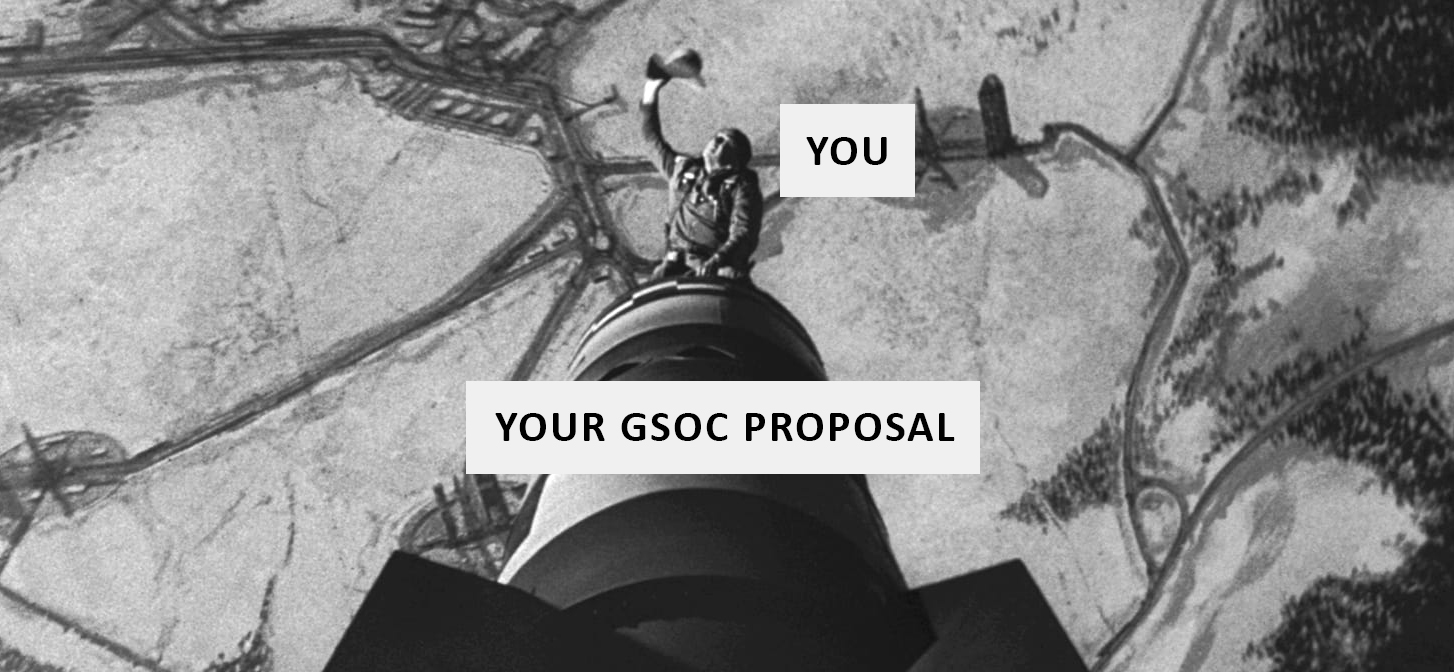Ah, the lead up to Google Summer of Code (GSoC). Weeks of excitement, and the promise of a bright future. And lots of time to absolutely torpedo your chances of working with MetaBrainz or your open-source organisation of choice. Here’s how.

1. Apply last minute
You wake up. The sun is shining. It’s a lovely day! It’s also the day before Google Summer of Code applications are due. Now’s a good time to pop in and say hi to the MetaBrainz team, and make a start on writing that application. Other applicants have been chatting with the team and refining their applications for weeks, getting familiar with a complex code base, but you can wing it!
If you find yourself in this situation, go out and enjoy the day, and start thinking about next year’s GSoC.
2. Do no homework
You have read our Getting Started with Google Summer of Code wiki page. Well, skimmed it. It’s such a lot of words! And that page is so boring. You’re here for exciting coding, not stupid boring dumb word reading. Jump straight into the chat, and ask the busy devs what to do next.
We know that getting started isn’t easy. That’s why we wrote the Getting Started page. If we are hand-holding you through basic questions, with answers that you can find yourself, we will sense trouble. Trouble does not get selected for GSoC.
3. ChatGPT
Your English isn’t the best. And you’re kind of busy right now. Hey Chat GPT: “write a Google Summer of Code introduction for MetaBrainz [project name]”. Wow, that looks pretty good! Now you have the rest of the day free to play Helldivers 2.
We are looking for good developers, not perfect English speakers. Tidying up some rough edges of your own writing with AI/LLM/ChatGPT might be okay, but we would prefer to just see your typos. And yes, we can tell if it’s ChatGPT.
4. Don’t make any code contributions
You haven’t written any code for MetaBrainz yet, but you’ve written an epic Google Summer of Code proposal. The proposal describes so much amazing code that you’re going to write! Once you get accepted you’ll start writing it.
Actions speak louder than words, and students who are afraid to get their hands dirty don’t get selected for GSoC.
5. Be inflexible
Only the first draft, and you’ve already nailed your Google Summer of Code application. You got a few notes from the MetaBrainz mentors, suggesting changes to your approach. Easy, add a few paragraphs to your application saying you’ll integrate the feedback. Ready to submit!
Mentors are going to be spending a lot of their time working with selected students. This is your chance to show them that you can listen, learn, and then take action. And generally be a pleasure to work with.
6. Apply and disappear
Today’s the day that successful Google Summer of Code projects are announced. You spent a few weeks getting to grips with MetaBrainz code, talking to mentors, and getting your application just right. Fingers crossed… bummer. You didn’t get in. Oh well. Time to move onto something else.
If you have some free time this summer, stay and hang out! It won’t be paid, but you can still pick up tickets and get real-world skills and experience. You don’t need to be accepted into GSoC to make contributions that will look great on future job applications.
7. Don’t try again
All you got in return for your Google Summer of Code application to MetaBrainz was some blunt feedback about what was wrong. You’re not going through that again.
First-time GSoC applicants don’t get the opportunity to learn from their mistakes. Use this to your advantage. Take the feedback on board, and make your next proposal impossible for MetaBrainz to pass up.
8. Argue with or ignore your mentors
Your Google Summer of Code mentor says to do something differently. But you talked to your lecturer and your friends and your mum and they confirmed that your way is better. The MetaBrainz mentor just needs to come round to your way of thinking. It looks like the teacher is about to become the student.
You are here because you are excellent (and/or ambitious) at development. The situation will arise where you don’t agree with a mentor. Come in with the impression that your mentor needs to convince you that their suggestions are ‘better’, and you will have a lot of free time this summer.
Good luck!
Don’t follow any of these instructions and you will have a significant advantage over a lot of other applicants. Everything else that you need to know can be found on our Getting Started with Google Summer of Code wiki page, or Google’s GSoC page.
The 2024 GSoC applications start March 18, and the deadline is April 2. Have fun, and good luck!

👍
This article seems to be based on many mistakes that have already been made 😉
Well, your use of sarcasm is on point! XD